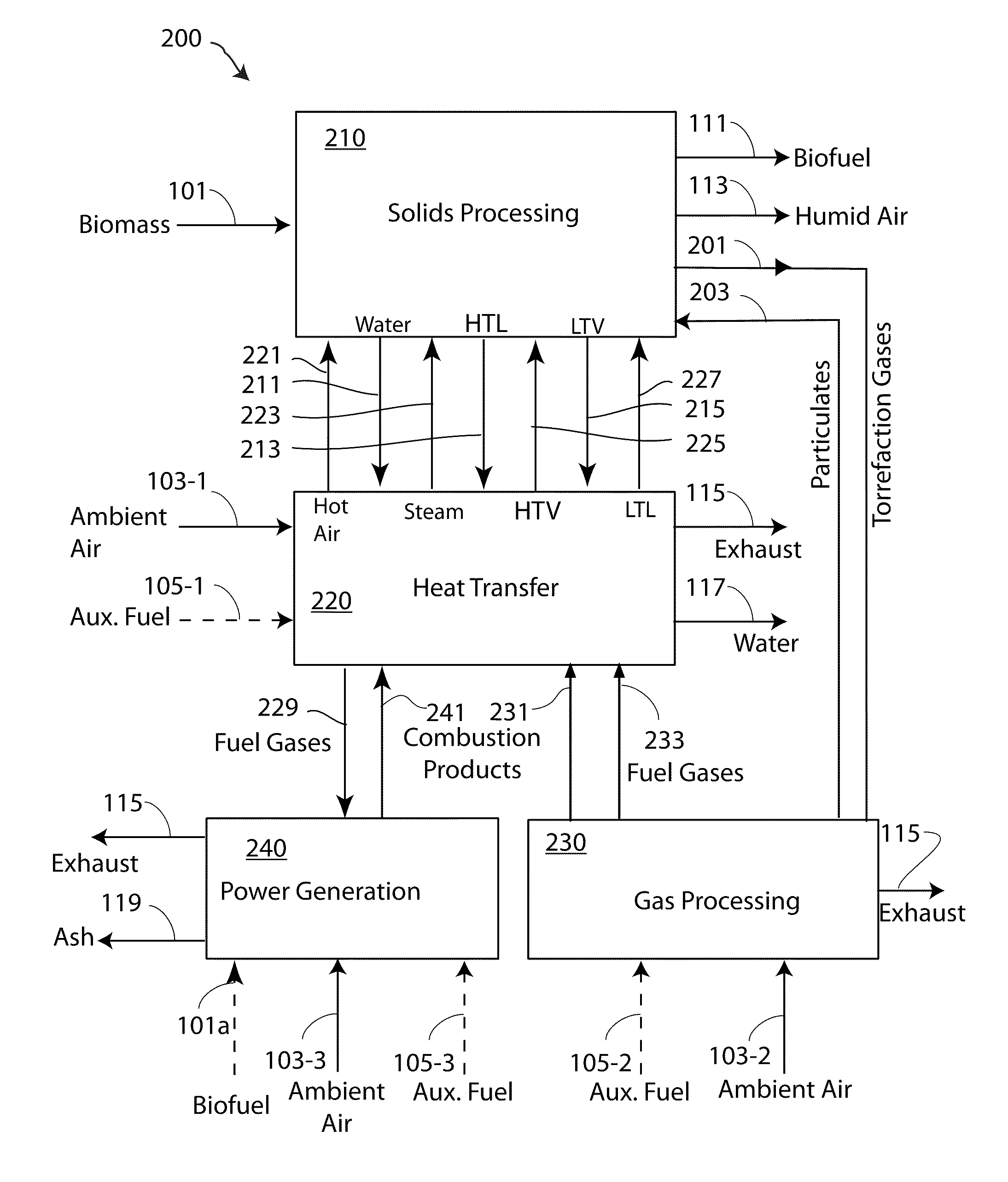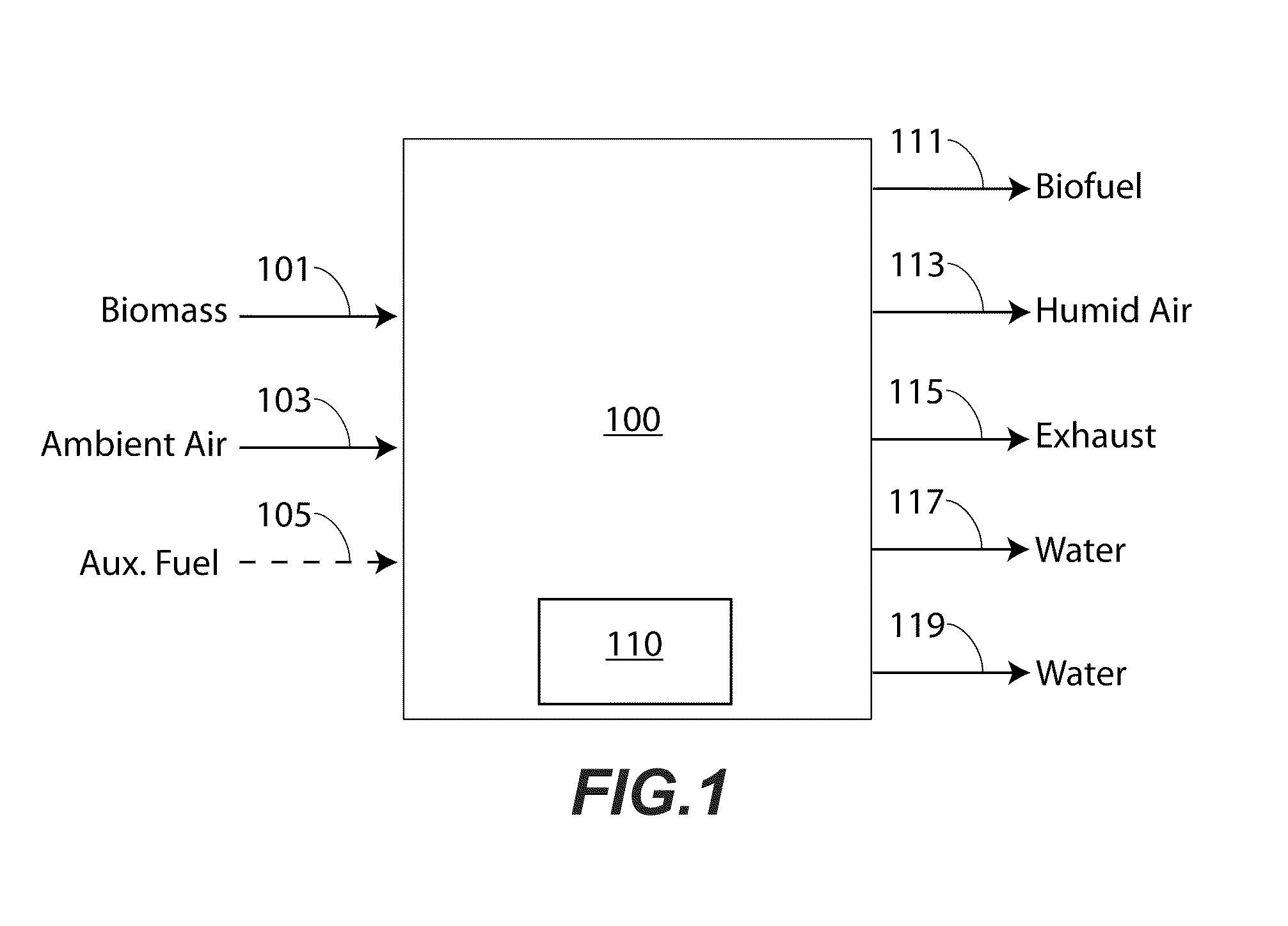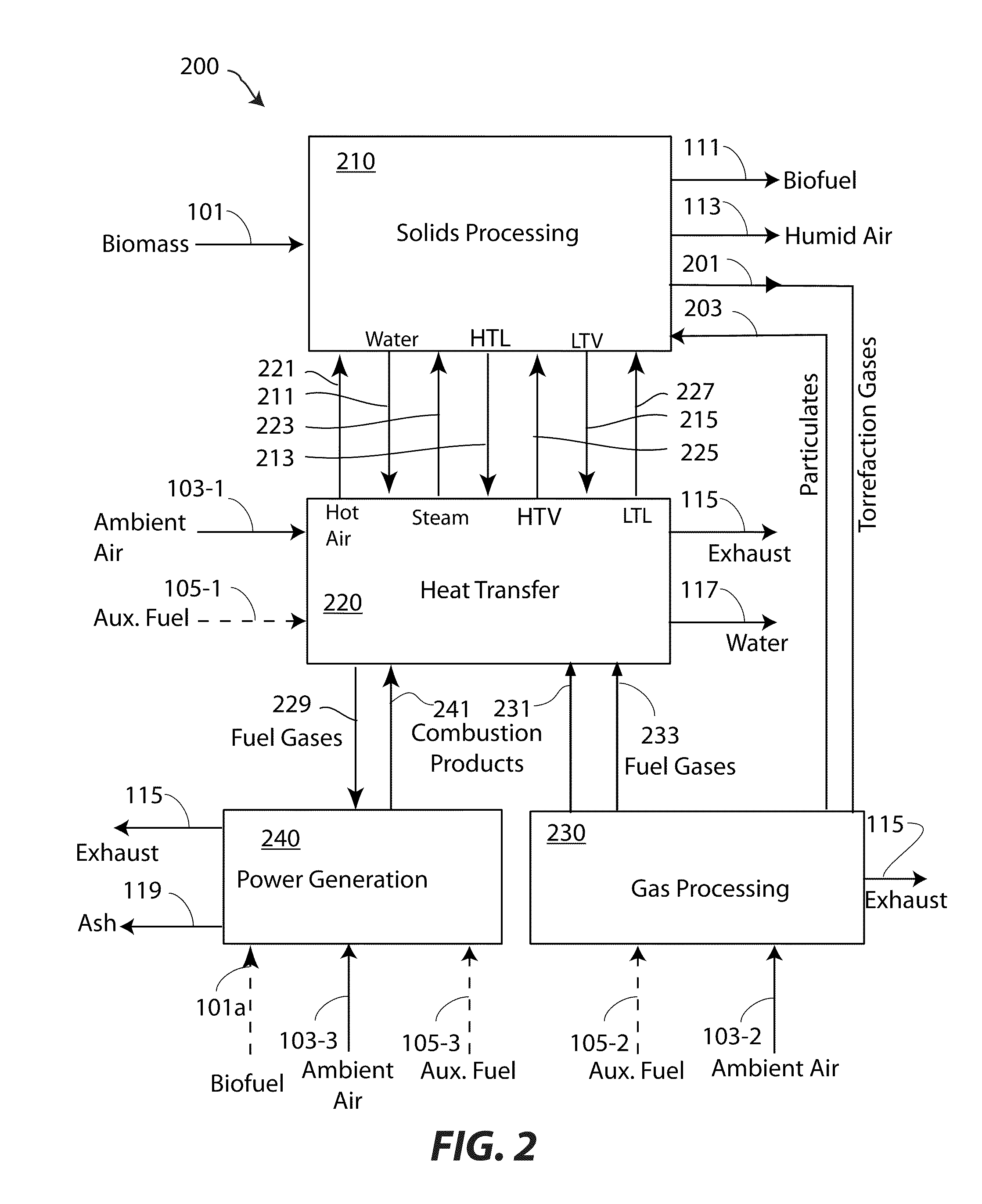Method for conversion of biomass to biofuel
a technology of biomass and biofuel, which is applied in the production of combustible gas, presses, manufacturing tools, etc., to achieve the effect of increasing the energy value of gas
- Summary
- Abstract
- Description
- Claims
- Application Information
AI Technical Summary
Benefits of technology
Problems solved by technology
Method used
Image
Examples
Embodiment Construction
[0035]FIG. 1 is a general schematic of an apparatus 100 for converting biomass to biofuel. The term “biomass” is a general term that refers to living matter or formerly living matter. It may include, for example and without limitation, material specifically grown or gathered for conversion to biofuel, or waste products from the use or maintenance of plants. Examples of biomass include, but are not limited to, woody biomass, agricultural byproducts, and municipal green waste. A “biofuel” is a fuel composed of or produced from biological raw materials. One type of preferred biofuel is a solid that is compatible with existing power plants, allowing for the reduction or elimination of conventional hydrocarbon fuels. Other types of biofuels are gaseous, liquid, or some combination of gaseous, liquid, and / or solid biofuel. The term “torrefied biomass” as used herein refers to a biomass that is heated to a moderate temperature, such as above approximately 100 C and below approximately 500 ...
PUM
| Property | Measurement | Unit |
|---|---|---|
| pressure | aaaaa | aaaaa |
| length | aaaaa | aaaaa |
| diameter | aaaaa | aaaaa |
Abstract
Description
Claims
Application Information
 Login to View More
Login to View More - R&D
- Intellectual Property
- Life Sciences
- Materials
- Tech Scout
- Unparalleled Data Quality
- Higher Quality Content
- 60% Fewer Hallucinations
Browse by: Latest US Patents, China's latest patents, Technical Efficacy Thesaurus, Application Domain, Technology Topic, Popular Technical Reports.
© 2025 PatSnap. All rights reserved.Legal|Privacy policy|Modern Slavery Act Transparency Statement|Sitemap|About US| Contact US: help@patsnap.com



